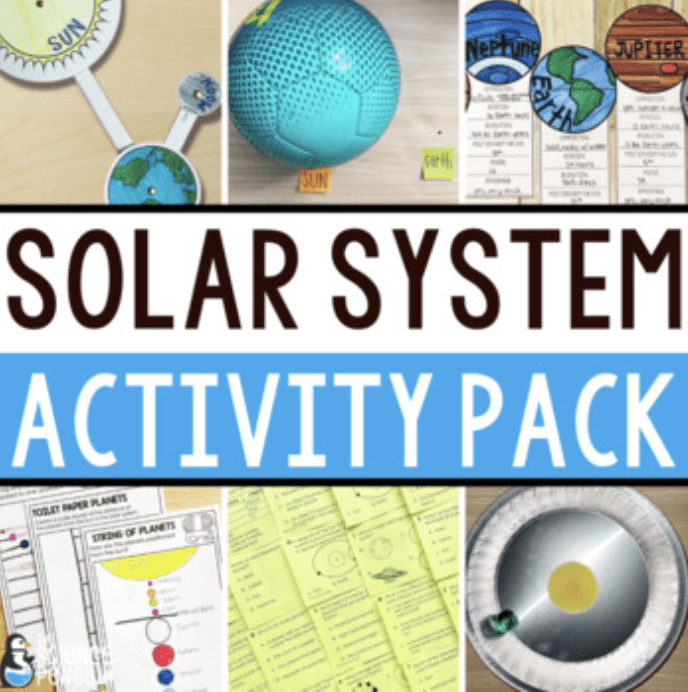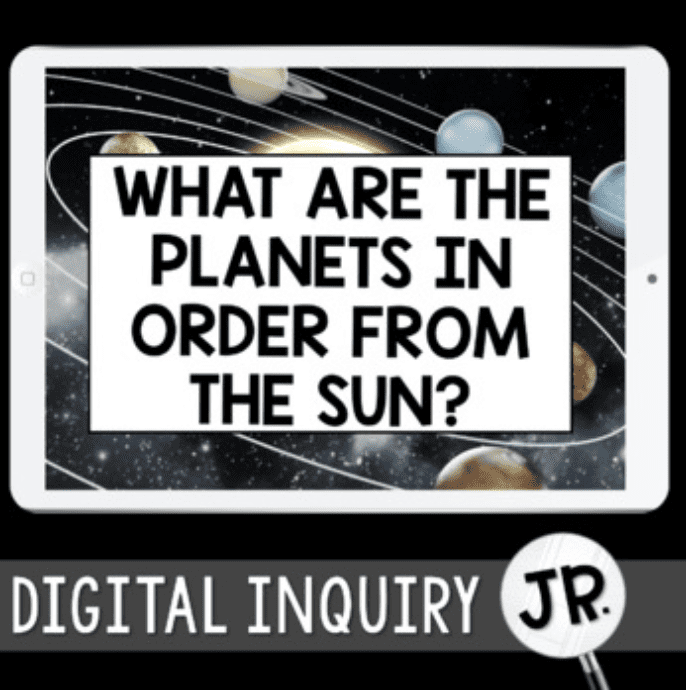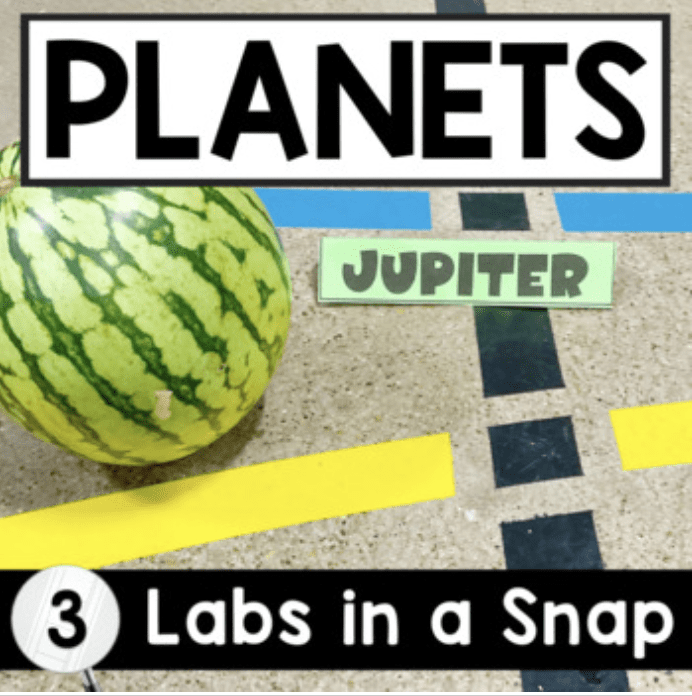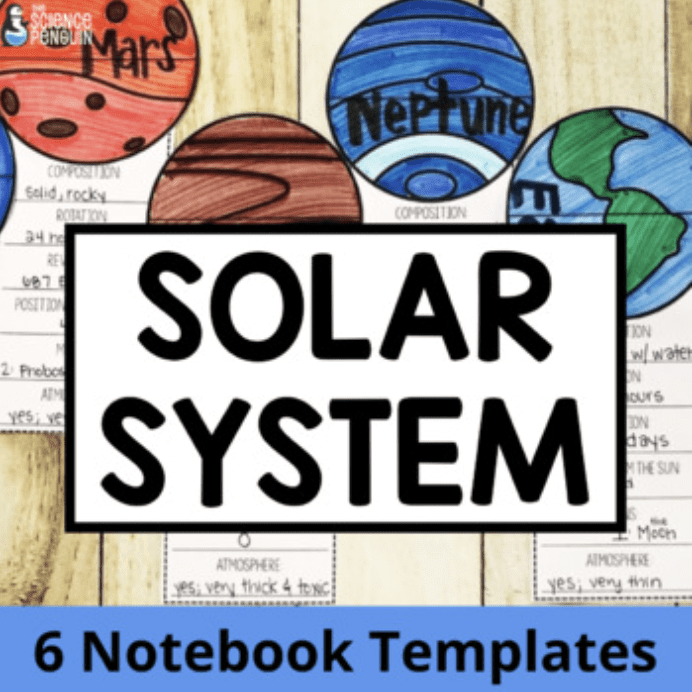
I don’t know about you, but when my students heard we were starting our space unit, there was a lot of excitement in the classroom!
The planets provide a fascinating topic for students to learn about because they provide a lens into our solar system.
Studying the planets can help students understand how our Earth fits into the larger cosmic landscape, from the smallest asteroid to the largest galaxy.
Additionally, the planets offer a unique opportunity for students to explore their orbits’ location and appreciate our universe’s wonder and beauty.
Let’s take a closer look at the following 5 ideas to make your space journey a success!
#1 Mnemonic Device- Order of Planets

In 3rd grade, students must learn the names of the planets and their position from the Sun. The order of the planets is sometimes tested on the 5th grade Science STAAR test.
A standard mnemonic device I used with my students to help them remember the order of the planets was:
My Very Excellent Mother Just Served Us Nachos.
Sometimes they would mix up Mercury and Mars, and I had a solution!
I would ask my students, “How many letters are in the word MARS?” They would realize that Mars had 4 letters, and it was the 4th planet from the Sun!
For extra fun, have your students create their own funny mnemonic devices to share!
#2 Labs In A Snap



Planets Labs in a Snap are designed to help teachers easily incorporate hands-on activities for the order of the planets from the Sun.
The 3 lab activities will allow students to:
 Create bracelet models of the solar system
Create bracelet models of the solar system
 Use fruit to see the distance and size of the planets
Use fruit to see the distance and size of the planets
 Use toilet paper to help students visualize the space between planets
Use toilet paper to help students visualize the space between planets
When implementing within the 5E model, these labs are terrific for Explore, Explain, and Elaborate!
Check out these Hands-On Activities on TpT: Planets Labs in a Snap 3rd Grade Solar System Activities
#3 Research Project

Do you have those times when students are asking you questions on a topic you may not know the answer to, and you say, “I’m not sure, but why don’t you research about it?”
I loved allowing my students to take ownership of their learning so they could make discoveries along the way, especially when learning the characteristics of the planets.
Our Planets in Our Solar System Interactive Science Notebook Activities allow your students to research facts such as composition, rotation, revolution, position from the sun, how many moons, and if there is an atmosphere!
This would be a great display in the classroom, hallway, or even create a booklet!
Check it out on TPT: Planets in Our Solar System Interactive Science Notebook Activities
#4 Solar System Scale Video
A lot of times when my students would tell me the order of the planets, they assumed that they would all line up in a straight line.
But, in reality, we know that our planets travel on their orbits at different rates and have different sizes.
This video from YouTube was just the right resource! As we know, it is impossible to show the solar system truly to scale, respecting sizes, distances, and times.
This clip also explains why making an actual size Solar System is impossible too! Enjoy!
#5 Comparing Inner and Outer Planets
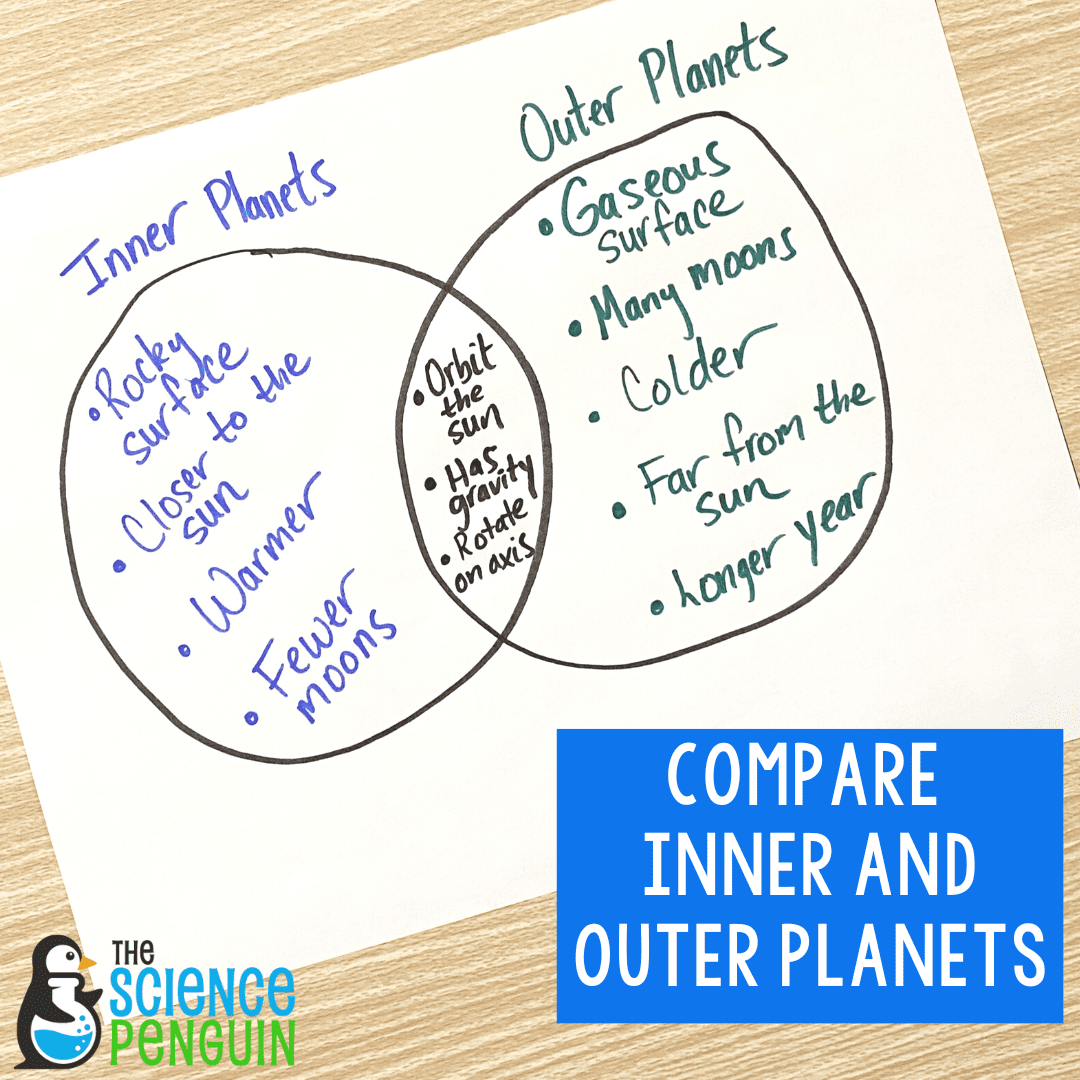
One idea for teaching the difference between the inner and outer planets is to create a Venn diagram template that compares and contrasts the planets in terms of their size, composition, and distance from the sun.
This would be a great follow-up after students research individual planets.
For example, you could discuss how the inner planets are smaller and composed mainly of rocky materials, while the outer planets are larger and composed mainly of gas and ice.
You could also discuss how the inner planets are closer to the sun than the outer planets and how this affects their temperatures and other characteristics.
Once students understand the primary differences between the inner and outer planets, you can use activities and other visual aids to help them better understand the differences.
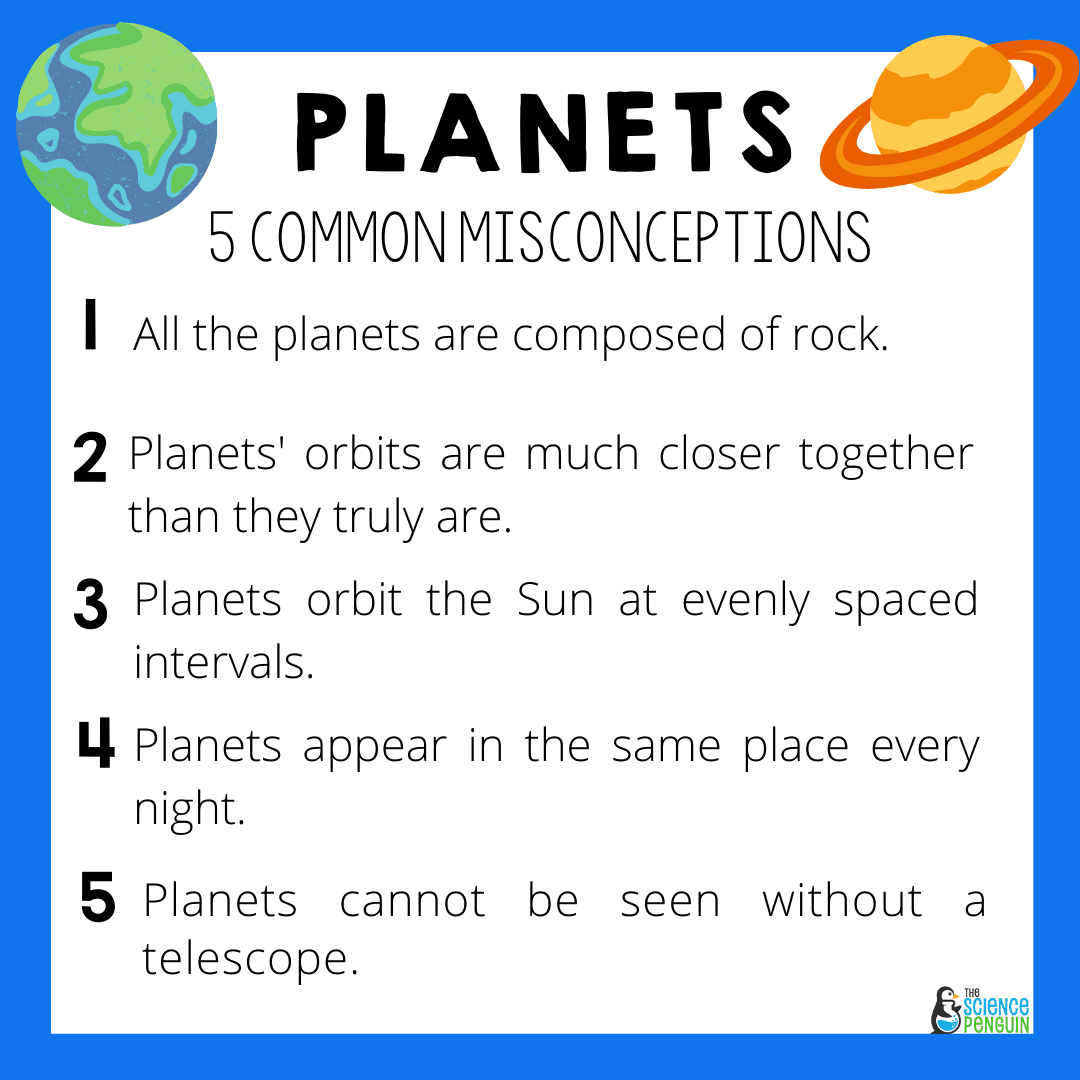
Top Teaching Tools
The post Explore the Universe: 5 Amazing Ideas To Teach About the Planets! appeared first on The Science Penguin.


